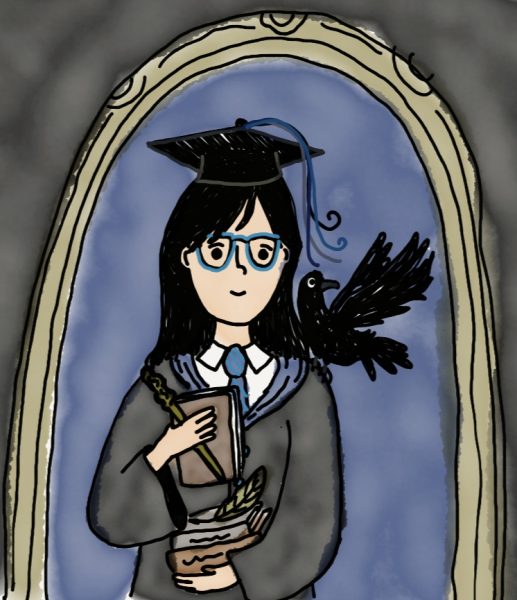Stop The Shakespeare
With just the line “but soft, what light through yonder window breaks,” sighs of adoration can be heard from millions of English teachers across the land, reveling their beloved William Shakespeare. California Common Core requires at least two years of studying Shakespeare; in modern day America, most all public high schools have an infatuation with the writer that will not fade, as students are forced to read one of his works every single year. Shakespeare can be ridiculous in his exaggerated reactions and scenarios, as “Romeo and Juliet,” “Macbeth,” and “Hamlet” all contain various themes that high schools overly and unreasonably promote. Now, before continuing, “a soothsayer bids you beware” that there are spoilers and a lot of sarcasm in the following article. If you happen to hold ol’ William in a dear place in your heart (or above your heart, I do not judge personal tattoos) then I suggest you quit reading now; the rest of you satirical naysayers, continue on.
Romeo and Juliet is one of the most famed couples in all of romance history, but why? I have never understood the popular comparison of love to that of Romeo and Juliet’s dreadfully ridiculous story. In case you live under a rock and do not know what “Romeo and Juliet” is about, it is a play of two star-crossed teenage lovers whose romance is deemed forbidden by their feuding families. Heartbreakingly tragic, until you learn that not only was Juliet was a mere 13 years of age while Romeo is written to be roughly 16 or older, but they also had known each other for less than a week before making the obvious and totally rational decision to kill themselves over a miscommunication. Shakespeare himself killed chivalry when he made the idea of love about killing yourself over the girl of whom’s pants you were attempting to get into. Somehow, this love story is one that high school English classes deem wise to teach to youthful freshmen.
“Is this a dagger I see before me?” No, it is your insanity and guilt over plotting to kill your king, “thou cream faced loon.” Although “Macbeth” is not as idiotically overdramatized as that of “Romeo and Juliet,” it poses unrealistic, frightening even, expectations. “Macbeth” begins with three witches whose prophesy sends the lead tragic hero, Macbeth, into hysteric paranoia. Long story short, Macbeth ends up insane, killing the previous king of Scotland, his best friend, the family of a possible traitor, and all the while this bloodshed is being promoted by his dear wife. “Macbeth” is supposed to be a gruesome tale that accurately portrays the cruelties of life but rather the audience watches in horror as the dramatic and unnecessary murders of various forms unfold, including the deterioration of Macbeth and his wife’s sanity. What a stable lifestyle for students to look up to!
Speaking of murder, who is up for some “Hamlet?” Certainly not Ophelia, Hamlet’s deceased girlfriend, nor anyone else in the play for that matter seeing as how most of the characters end up dead. This tornado of a tale starts with the death of Hamlet’s father and ends with the death of Hamlet. Most everyone else, from Ophelia’s father, Polonius, to Hamlet’s mother, Gertrude, die at varying other points. Whether it be poison or pirates or swords with poison tips or insanity or drinks of poison, death is a constant theme throughout the play, providing a most…lively experience for the audience. In “Hamlet,” William feels the need to kill off a character every time the plot plateaus, another quality device high schools love giving to aspiring young writers in their fourth year of high school.
These three stories have one base theme of too much—too much love, too much crazy, and too much death. Public high schools love shoving this down our throats all four years of English, which also happens to go with Shakespeare’s theme of too much. Starting off with a tale of two newly-met teenagers who called it love and killed themselves for each other when we all know he simply wanted to get between her sheets, then a killer couple with their eyes on the throne and hands on their hilts, and ending with the appearance of a ghost whom eventually leads to the deaths of most all of the characters in the play, is not high school material. High schools should choose only one of Shakespeare’s plays and leave it at that rather than working one into every year’s agenda. Then, the question would be “where art thou Romeo?” instead of, where art thou Shakespeare, and why so much?
Hello there! Our goal is to provide relavent, engaging journalism for readers of all ages. Your donation will support the student journalists of the Wolfpacket at Claremont High School, and will allow us to purchase equipment, print our monthly issues, and enter in journalism competitions. We appreciate your consideration!

Writing enthusiast Isabelle Allison is a senior at CHS and a reporter on the Wolfpacket. For her second year on the staff and last year of her high school...




